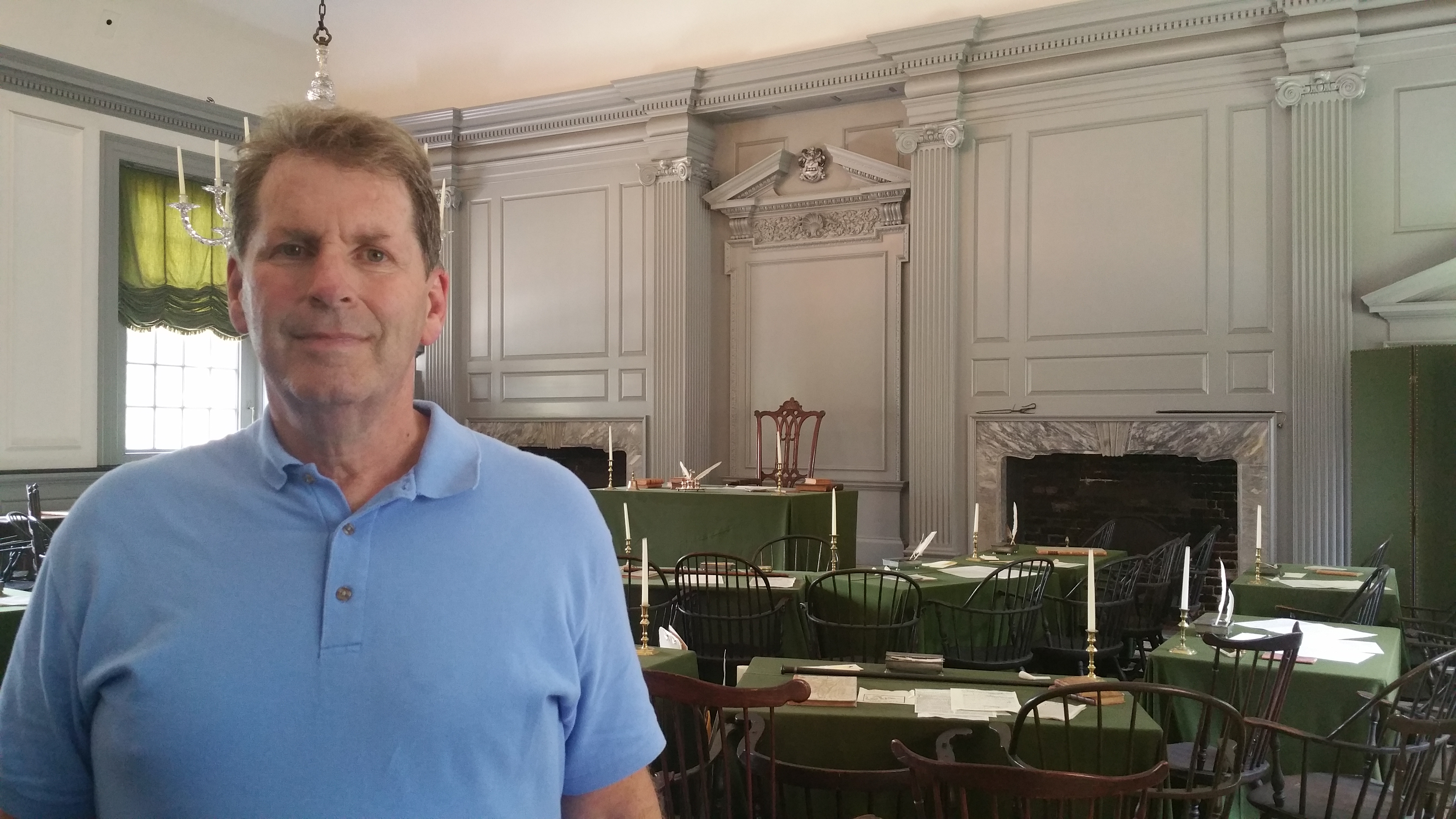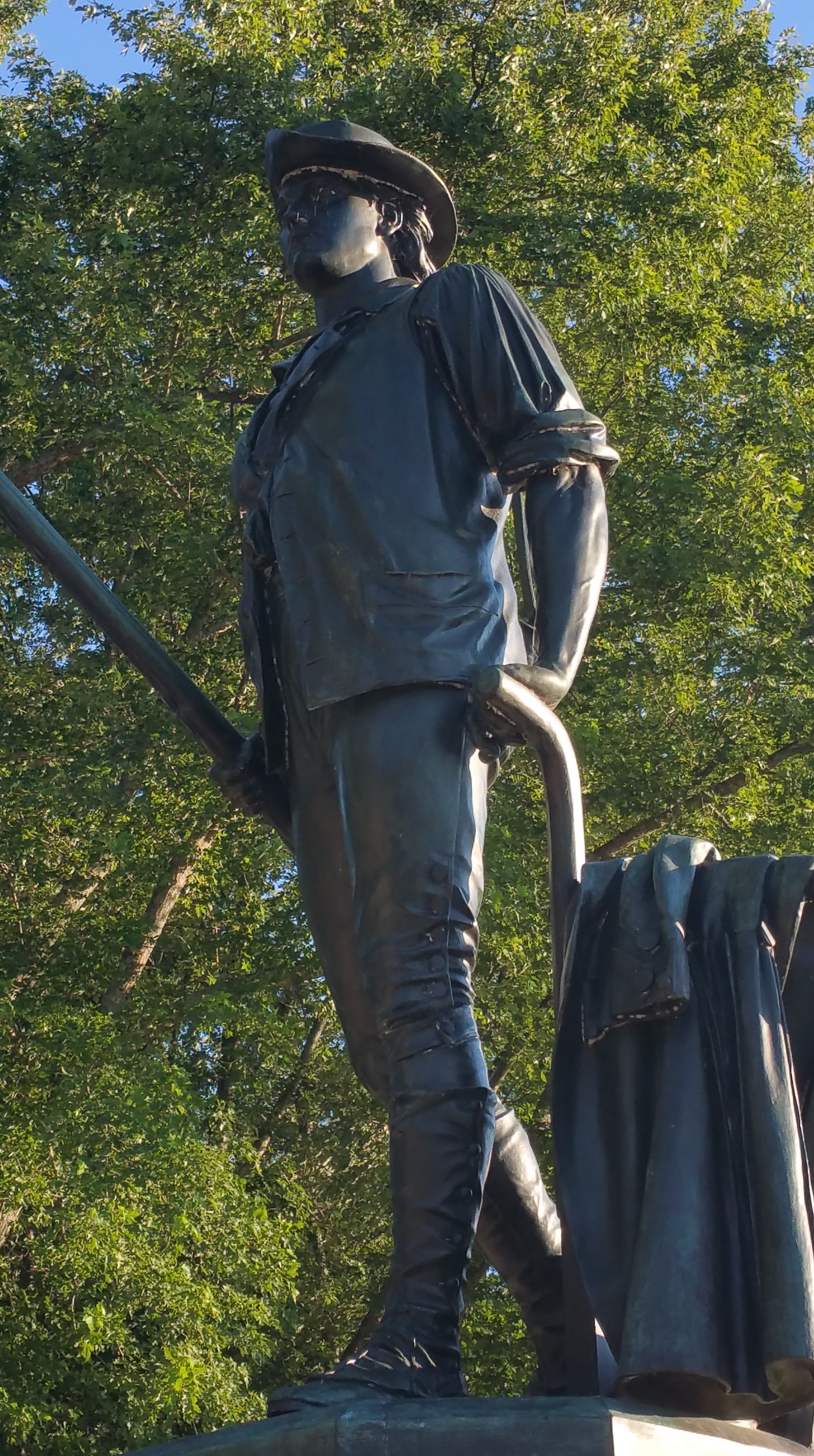
Today, July 4th we are in Freeport Maine and it is a special day in these United States, it was the day the Declaration of Independence was adopted; signed by those with the knowledge it could be a death sentence. The Congress had actually voted for independence on the second of July, and it was on this day John Adams wrote to his wife Abigail,
The second day of July, 1776, will be the most memorable epoch in the history of America. I am apt to believe that it will be celebrated by succeeding generations as the great anniversary festival. It ought to be commemorated as the day of deliverance, by solemn acts of devotion to God Almighty. It ought to be solemnized with pomp and parade, with shows, games, sports, guns, bells, bonfires, and illuminations, from one end of this continent to the other, from this time forward forever more.
He was off by two days, as the declaration was finalized and read out to the public on the fourth, but he was amazingly precient about the celebrations, and his advocation for this to be a day of devotion to God Almighty, indicates he believed it to be a spiritual revolution, as the vast majority of those involved with the revolution believed it to be. If it was a war over property, money (taxes), and personal pride only then it could not rise up to that caliber of being called spiritual. However, we know from the speeches and writings of those participants that it was foremost in their minds that Divine Providence was the author of this movement–it was to be far more than a political movement, it was to be a spiritual revolution.
Part of this North American Pilgrimage has been our standing upon some of the historical sites where pivotal actions and words made up the spiritual foundations of America. We travelled to Philadelphia and Independence Hall where the rights of citizens were debated. It was this very place the final dissolution from a parliament and king who were tone deaf to the petitions from its distant citizens resulted in the colonists declaring for independence.
If it is national pride only that spurs me on, then it would be relevant only to those of the United States. However, these actions and thoughts carry a more universal meaning. The urge for freedom of thought and action, the rule of law, a check and balance among governmental entities to prevent abuse, the affirmation that fundamental rights are derived from God and not the caprice of a king, despot or even an elected government, that citizens elect their leaders and may depose them if they misbehave or abuse their power, that there are certain fundamentals that may not be tampered with combined with a flexibility for change in law–these were revolutionary ideas of the time–never been tried before–many, most, around the world thought it would fail–and it is a revolution of basic rights and protections that a large portion of humanity still do not have today.
We recently stood at the North Bridge near Concord, where Ralph Waldo Emerson wrote some years after the fact in the poem Concord Hymn,
By the rude bridge that arched the flood,
Their flag to April’s breeze unfurled,
Here once the embattled farmers stood,
And fired the shot heard round the world.
A citizen’s militia called Minutemen, they could be ready in a minute, were ordered to fire back at British Regular Troops who had come to confiscate their guns; it was the first act of resistance ordered by a militia commander; it was a shot heard round the world affirming the rights of colonial Englishmen and ultimately all humanity. Emerson’s grandfather’s house was but 300 feet from North Bridge; the Reverend Emerson was an advocate for the rights of individuals, the revolution and became chaplain to the Continental Army–he died of camp fever while with the army. From their house the Reverend Emerson and family watched as the British Regulars marched across the bridge, heard the gunfire of the opposing sides, and watched as the Regulars left as a scattered group back to Concord.
Some of America’s great writers lived in the vicinity of the North Bridge, one of those was Henry David Thoreau. Thoreau brought the revolutionary ideals to the next level when he wrote: “Do we call this the land of the free? What is it to be free of King George and continue to be slaves of King Prejudice? What is it to be born free and not to live free? What is the value of any political freedom, but as a means to moral freedom.” [Life Without Principle] Moral freedom, spiritual freedom must then be the natural consequence to the great gift of liberties gained through self-government and from those who sacrificed so much. To squander our freedom on licentious behavior that results in a tyranny of bad habits shows disrespect for our Creator who has endowed us a far ranging freedom of Soul.
We can all declare our freedom from ignorance, the Maya of delusion of separation from our oneness with Divinity. Then we must act upon that declaration of freedom, to break the chains of king attachment. We truly are endowed with ultimate freedom from our infinite Beloved, however we have bound ourselves to endless rapacious desires which makes us a captive soul. Yes to declaring our freedom! Let us soar on wings like eagles and to experience the Soul’s joy born of deepened meditation and love of God.
Picture, Minuteman near North Bridge Concord-this is an early sculpture is Daniel Chester French, sculpter of Abraham Lincoln at Lincoln Memorial. We were told by a lady out for her walk across North Bridge that French had lived nearby and was encouraged to sculpt by May Alcott after she saw him carving vegetables!
